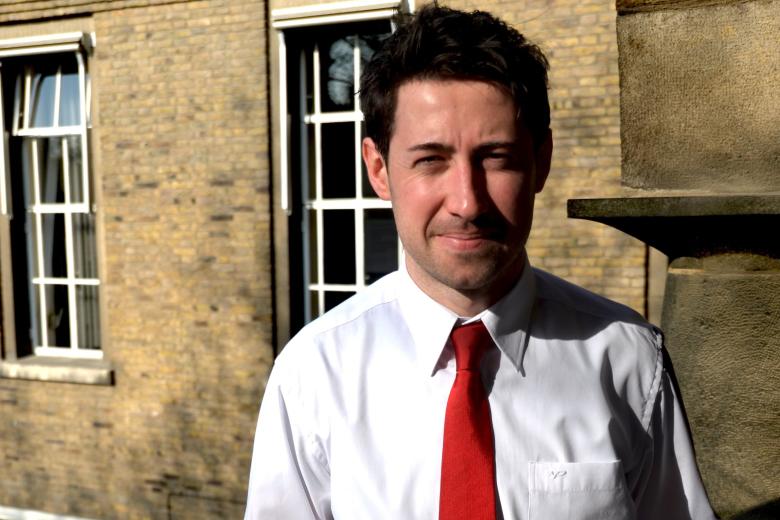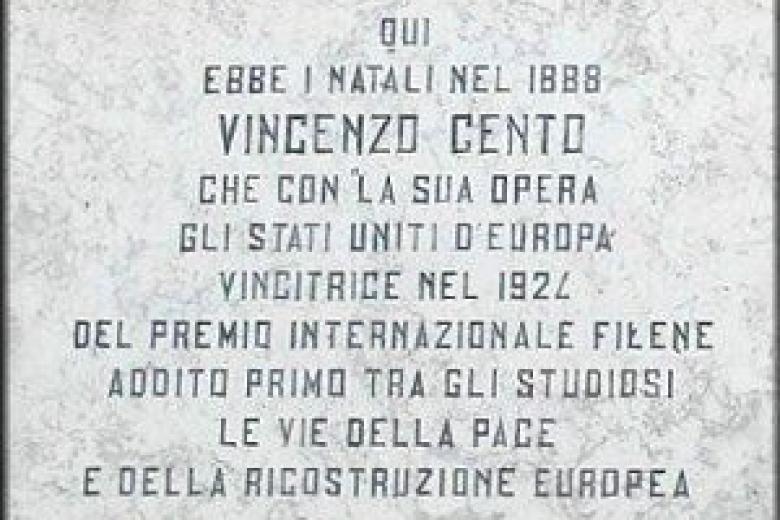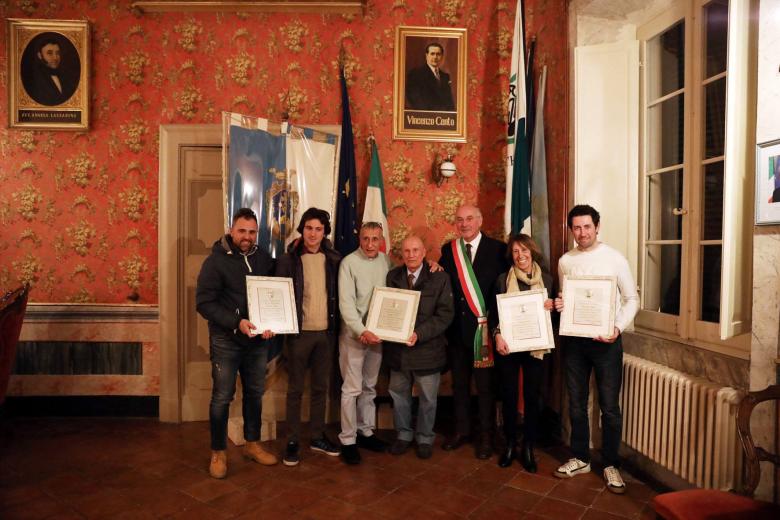Vincenzo Cento and “The United States of Europe”
On 16 December 2018, I had the pleasure of visiting the home town of my late Italian grandfather, a small hilltop community called Pollenza, in the lesser known region of Le Marche.
The Italian side of my family, the famiglia Cento, has produced a number of academics, including both my mother, Anna Cento Bull, Professor of Italian History and Politics at the University of Bath, and my grandfather, Alberto Cento, Professor of French language and literature at the University of Naples. What I had not realised, however, is that my great-grandfather was also a renowned scholar, and apparently quite an important name in the town of Pollenza.
That this is the case became apparent pretty quickly, as there are various commemorative plaques around the town bearing the name Vincenzo Cento; one of the main streets leading into the centre of Pollenza is called Via Vincenzo Cento; and there is even a statue of him in one of the public squares. Why, you might wonder, is this particular academic such a nom célèbre in the town? Certainly, I was asking myself this question, until I came across the plaque commemorating Vincenzo’s publication entitled “The United States of Europe”, which won an international award in 1924. This most recognised of Vincenzo’s works, it transpires, is something of which the Pollentini (the people of Pollenza) are very proud.
My visit to Pollenza then took an even more surreal turn when I was told that the Mayor, Luigi Monti, upon hearing of our presence, had summoned my mother, my uncle and myself to the town hall. It seems this was in part to formally welcome Vincenzo’s direct descendants to the town, but there was also a more specific reason behind the Mayor’s invitation. Apart from presenting us with a (or rather, yet another) commemorative plaque, Mayor Monti wished to inform us of his intention to organise a conference in the town on the subject of Vincenzo’s publication, in order to mark its hundredth anniversary, to which we would be invited as guests of honour.
Naturally, by this point, my interest was well and truly aroused. Not only did this sound like a very special occasion, but it also struck me as a poignant discussion at a time when both the people and the Parliament of my ‘other’ nation are tearing themselves apart over the question of European Union membership and ever closer union. Amidst all of the criticisms and accusations that have been levelled at the EU by Eurosceptic Britons in recent years, it seemed like an ideal opportunity to revisit and reaffirm the ideals that lay at the foundation of the European project. And given that Maastricht represents the birthplace of the European Union, as a researcher at Maastricht University I also saw the possibility of contributing to this conference, and my suggestion to do so was well received by the Mayor.
So it is with excitement and anticipation that I look forward to assisting the organisers of this conference in the months ahead, not to mention eventually attending as guest of honour!
| More blogs on Law Blogs Maastricht |
W.A. Bull
William is an Assistant Professor in the Private law department. His current research is in the field of sports law. In this area, he has focused particularly on sports agents and especially the regulation of access to and conduct of the profession of football intermediary. In addition, he has conducted research into the application of anti-money laundering legislation to the professional football sector in the context of the UEFA Research Grant Programme.

-
Don’t sweat the small stuff? The new proposal for the EU directive on corporate sustainability due diligence
On 23 February 2022, the European Commission released the much anticipated proposal for the Directive on Corporate Sustainability Due Diligence. The aim of this Directive is to reduce human rights violations and environmental harms across the global value chain by making large companies carry out...

-
M-EPLI’s commitment to the “private side” of a sustainable world continues…
Achieving a sustainable way of life requires massive societal changes and (private international) law should enable, rather than hamper, the realization of such essential goals.

-
The European Super League: opening the floodgates of competition law
Recent days have seen the meteoric rise and fall of the European Super League (ESL). This new league would have consisted of 15 founding clubs and 5 other clubs; the former consisting of ‘big clubs’ which could not be relegated and the latter in clubs who performed well over the past years on a...


